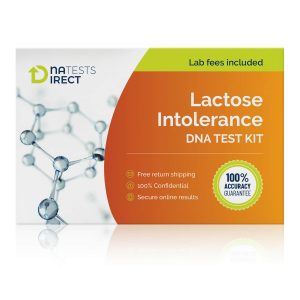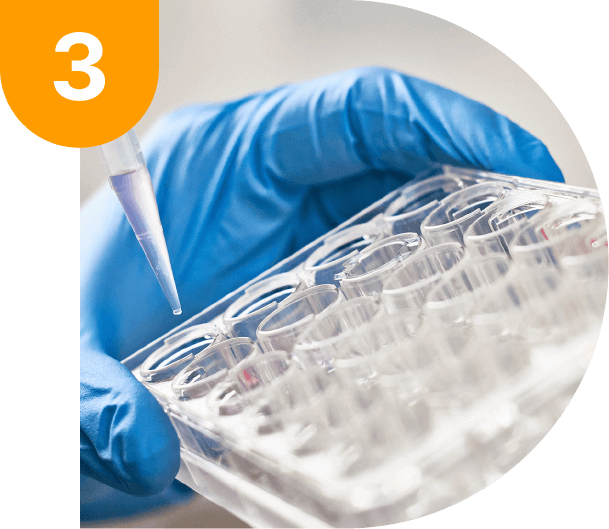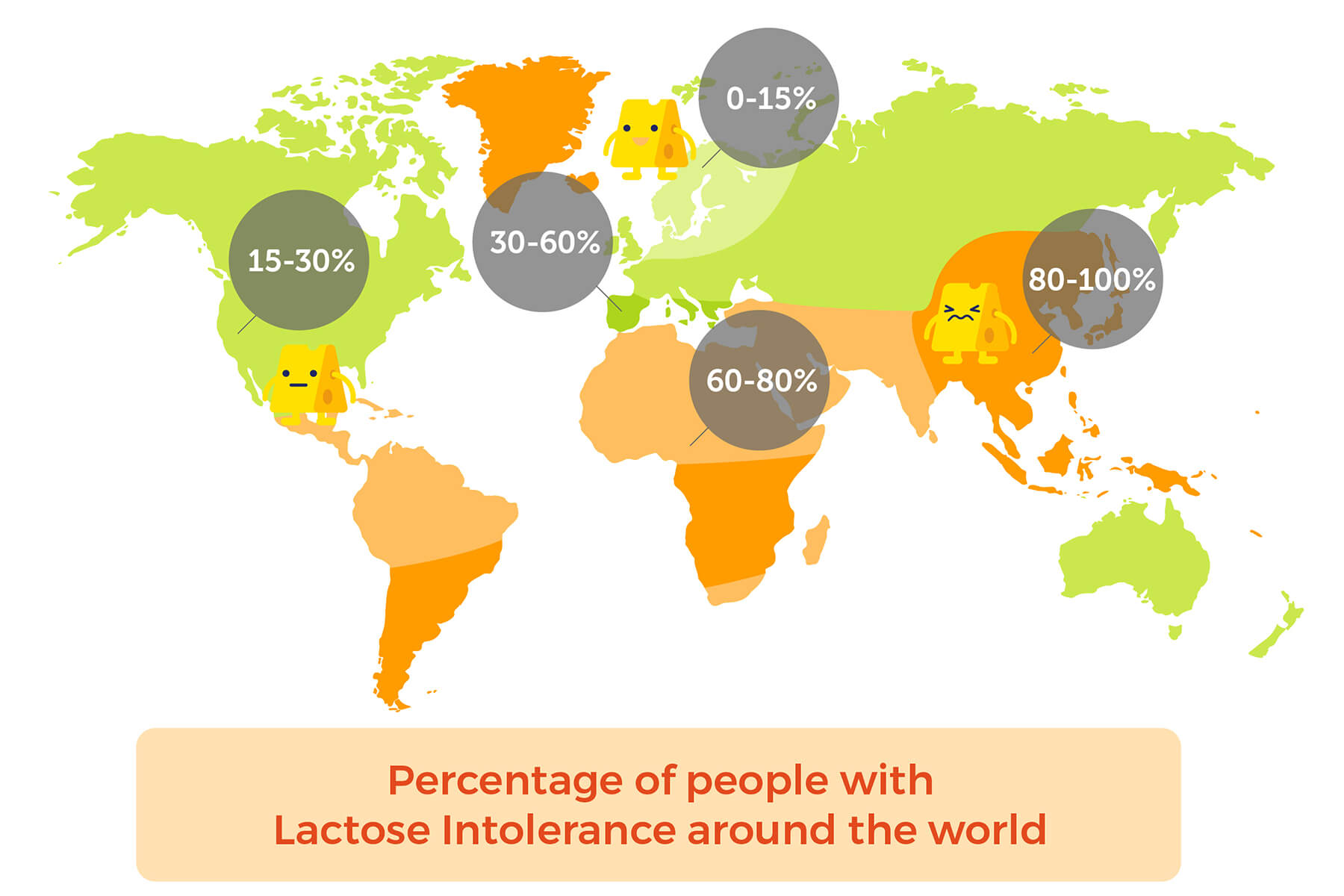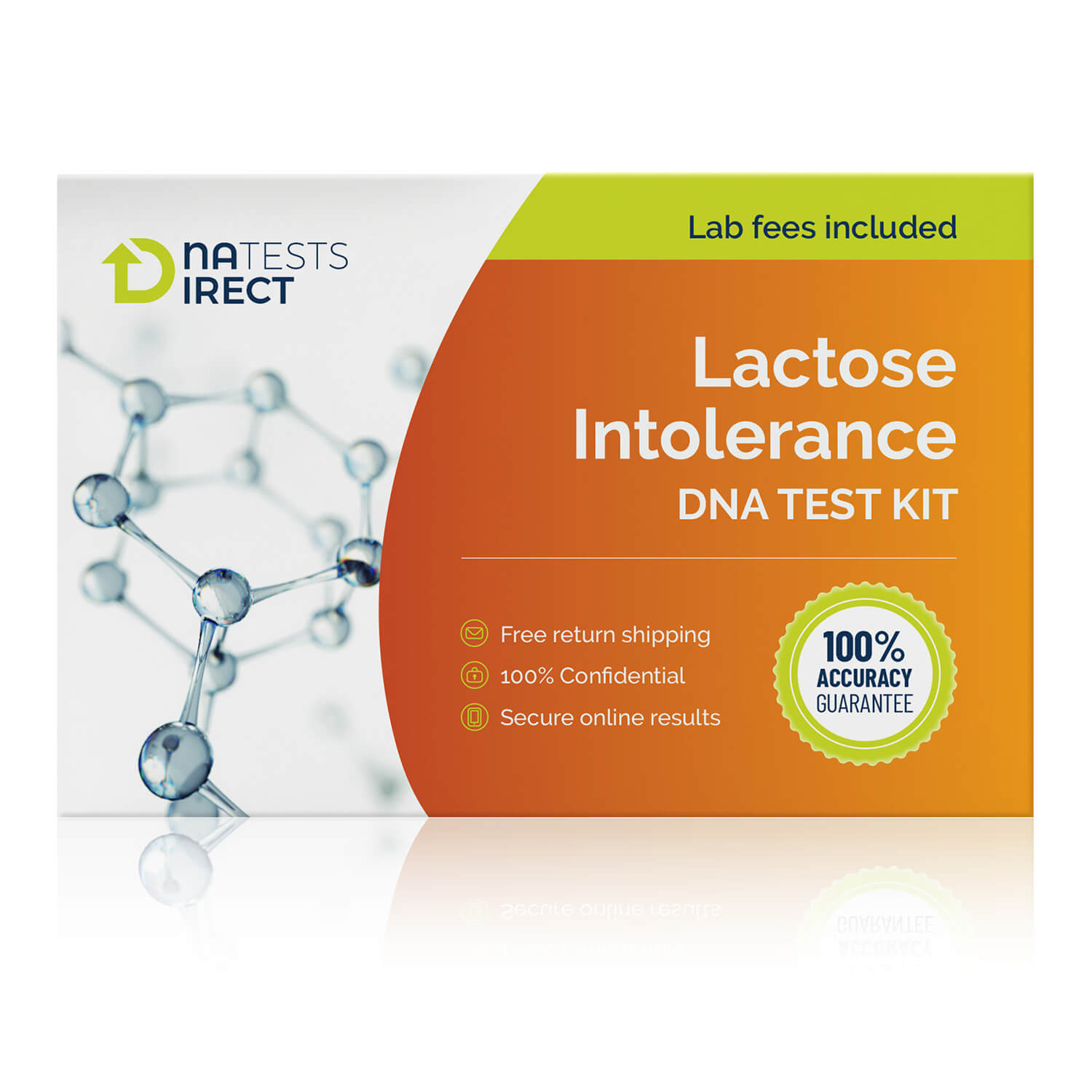 DNA Lactose Intolerance Test
DNA Lactose Intolerance TestDNA Lactose Intolerance Test
$149
Discover Your Dairy Tolerance
Are dairy products causing you discomfort? Our Lactose Intolerance DNA Test helps you understand your body’s ability to process lactose, the sugar found in milk.
- DNA Insights: Discover whether you carry one of five MCM6 variants linked to lactase persistence.
- Online Results: Receive confidential results through a secure online portal, ensuring your privacy and peace of mind at every step.
- Painless Sampling: Collect your DNA samples with easy-to-use mouth swabs – no blood or needles required.
How It Works

Order

Send

Receive your results

Results
What is Lactose Intolerance?
Lactose intolerance is a common digestive issue where the body has difficulty fully digesting lactose, a sugar found in milk and dairy products. This happens because of a deficiency in lactase, the enzyme that breaks down lactose in your body.
Lactase converts lactose into simple sugars in the small intestine. Most people naturally produce less lactase as they get older, which can make it harder to enjoy dairy products like ice cream, cheese, or yogurt.
If you have lactose intolerance, you might feel these things after eating or drinking dairy:
- Bloating and gas
- Stomach cramps
- Diarrhea
- Nausea
The severity of these symptoms depends on the amount of lactose consumed, the level of lactase your body produces, and even the types of bacteria in your gut.

The Genetics of Dairy Digestion
Why do some people struggle to digest dairy as they age? For most, it’s because their bodies produce less lactase over time, and this change is largely influenced by genetics.
The MCM6 gene acts like a switch that controls when and how much lactase is produced by our bodies. Some people have variations in this gene that allow them to keep producing lactase into adulthood, a condition known as lactase persistence.
Lactase persistence is more common in populations with a long history of dairy consumption, such as those in Europe and certain parts of Africa. These groups are more likely to carry variations in the MCM6 gene that allow them to continue enjoying dairy products without discomfort.
Other tests you may be interested in
Digestive problems can be caused by different dietary components. A sensitivity to gluten (celiac disease) is another common digestive problem. You may also be interested in our Celiac Disease Risk Test.
Your Lactose Test Results Explained
Your DNA Lactose Intolerance Test looks for changes in yourMCM6gene that are linked to lactase persistence. Knowing if you have these changes can help you understand how your body handles dairy. Here’s a breakdown of the changes (variants) that the test looks for:
| Gene | Variants | Description |
|---|---|---|
| MCM6 | rs4988235 | Commonly associated with lactase persistence in European populations |
| MCM6 | rs41380347 | Linked to lactase persistence often found in East African populations |
| MCM6 | rs145946881 | Linked to lactase persistence in some European and Middle Eastern populations |
| MCM6 | rs182549 | Commonly associated with lactase persistence and in Arabian populations |
| MCM6 | rs41525747 | Linked to lactase persistence found widely in East Asian populations. |
Frequently Asked Questions
Once your sample is received by our laboratory, processing usually takes 6-8 weeks. You will receive an email notification when your results are ready, and you can access your detailed report through a secure online portal.
We take data privacy seriously. Your results are confidential and only shared with you. We do not share your results with insurance companies, employers, or any other third parties.
Why DNA Tests Direct?
Accredited Excellence
Your Privacy, Protected
Expert Support
Related Test Kits

$249
Your skin’s appearance is influenced by your diet, the environment, and your genes. Take this test so you can personalize your skincare routine to your genetic makeup.

$498
Unlock your genetic potential for a healthier lifestyle with our comprehensive DNA Diet & Fitness 3 Test Combo. This bundle combines three powerful tests – Nutrition, Fitness, and Weight Loss – to provide a complete picture of how your unique DNA influences your overall health and wellness.

$349
Heart health is influenced by genetics because genes influence the levels of “good” cholesterol, “bad” cholesterol and triglycerides. Find out if you are at increased risk of poor heart health.

$195
Could your extreme sleepiness be due to narcolepsy? See if you carry the genetic variant associated with an increased risk of narcolepsy.

$195
Discover if you are at risk of developing hereditary hemochromatosis with this simple, at-home DNA test. This test detects three mutations in the HFE gene, which account for approximately 85% cases of hereditary hemochromatosis.

$149
Is caffeine your friend or foe? Our simple DNA test reveals if you’re a fast or slow caffeine metabolizer, so you can adjust your intake and feel your best.

$149 $271
Easily determine the likelihood of two people being full siblings, half siblings, or not siblings at all.

$149 $271
Find out the likelihood that two people are biologically related as first cousins.




